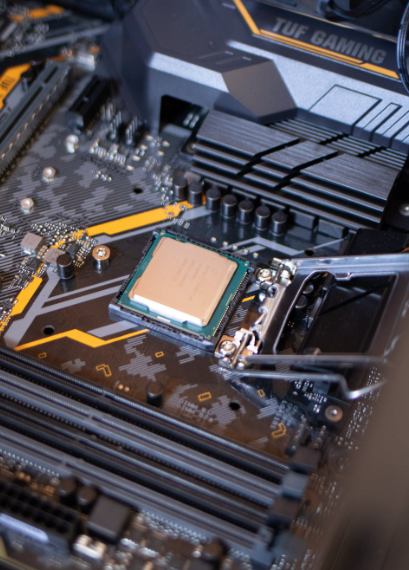Data privacy and security are of utmost importance in today’s digital age. When you’ve recently had your computer repaired, taking proactive measures to secure it and protect your personal information is crucial. This article will explore the significance of securing your computer after Greenfield computer repair and provide you with best practices to ensure data privacy.
Importance of Securing Your Computer after Greenfield computer repair
After getting your computer repaired, it’s essential to understand the significance of securing it to ensure data privacy and maintain a secure digital environment. Here are some key reasons why securing your computer after local computer repair is crucial:
Protecting Personal and Sensitive Information
Your computer contains a wealth of personal and sensitive information, such as financial data, login credentials, personal documents, and private conversations. Failing to secure your computer after repairs can leave this information vulnerable to unauthorized access, potentially leading to identity theft, financial loss, or other data breaches. By implementing security measures, you safeguard your personal information and control who has access to it.
Preventing Data Loss:
Computer repairs sometimes involve changes or updates to the system, which can inadvertently lead to data loss if not handled properly. Taking steps to secure your computer after repair from computer repair shops, such as creating backups and ensuring software compatibility, helps minimize the risk of data loss. By implementing appropriate security measures, you provide additional protection to your valuable data, ensuring that it remains intact and accessible.
Safeguarding Against Malware and Cyber Threats:
Computers connected to the internet are susceptible to various forms of malware, viruses, and cyber threats. During the repair process, your computer may be exposed to potential security vulnerabilities, making it more susceptible to these threats. Securing your computer after repairs strengthens its defenses against malware, viruses, ransomware attacks, and other cyber threats. This helps ensure your computer remains protected and your personal information is safe from malicious intent.
Maintaining Privacy and Control:
Securing your computer after repairs lets you maintain privacy and control over your digital life. By implementing security measures, you reduce the risk of unauthorized access, data breaches, and other privacy infringements. Whether it’s protecting your personal files, browsing history, or online activities, securing your computer empowers you to maintain control over your digital footprint and ensure that your privacy is respected.
Best Practices for Data Privacy
Update and Patch Software:
Keeping your operating system and software up to date is crucial for maintaining a secure computer. Software updates and patches often include important security fixes that address vulnerabilities. Ensure that automatic updates are enabled, and regularly check for updates to protect your computer from emerging threats.
Strengthen Passwords and Authentication:
Strong passwords and secure authentication methods play a vital role in data privacy. Create unique passwords that are difficult to guess, and consider using a password manager to help manage them securely. Additionally, enable two-factor authentication (2FA) or utilize biometric authentication methods, such as fingerprint or face recognition, for an extra layer of security.
Install and Update Security Software:
Protecting your computer with reliable antivirus and anti-malware software is essential. These security tools help prevent and detect threats that could compromise your data. Install reputable security software and ensure it’s regularly updated to protect against the latest malware and viruses.
Secure Wi-Fi and Network Connections:
Securing your Wi-Fi network is crucial for protecting your data from unauthorized access. Set a strong password for your home network and enable encryption (such as WPA2 or WPA3) to encrypt the data transmitted between devices and your router. Additionally, change default router settings to enhance security further.
Backup Your Data Regularly:
Data backups are vital for data recovery and protection. Regularly back up your important files and documents using external hard drives or cloud storage services. Set up automated backup schedules and verify the integrity of your backups to ensure you can recover your data if needed.
Practice Safe Internet and Email Habits:
Safe browsing practices are essential for protecting your computer and data. Avoid clicking on suspicious links or downloading files from untrustworthy sources. Be cautious with email attachments and practice email security by verifying the sender’s identity before opening attachments or providing personal information.
Educate Yourself and Stay Informed:
Staying informed about the latest threats and security practices is crucial. Keep up with cybersecurity news from reliable sources to understand emerging risks and preventive measures. Continuously educate yourself about evolving security practices to improve your computer’s security.
After Greenfield computer repair, securing your computer is vital for protecting your data privacy. You can maintain a secure digital environment by implementing these best practices, including updating software, strengthening passwords, installing security software, securing Wi-Fi connections, backing up data, practicing safe internet habits, and staying informed. Take proactive steps to protect your personal information and enjoy peace of mind knowing your computer is secured.
FAQs
Q: How often should I update my software and operating system?
A: It is recommended to enable automatic updates for your software and operating system. This ensures you receive the latest security patches and fixes as soon as they are available.
Q: What should I consider when creating strong passwords?
A: When creating strong passwords, consider combining uppercase and lowercase letters, numbers, and special characters. Avoid using easily guessable information such as birthdays or common words.
Q: How can I secure my Wi-Fi connection?
A: To secure your Wi-Fi connection, set a strong password for your home network. Use a mix of letters, numbers, and special characters, and avoid using easily guessable passwords.
Read article more geekshub





